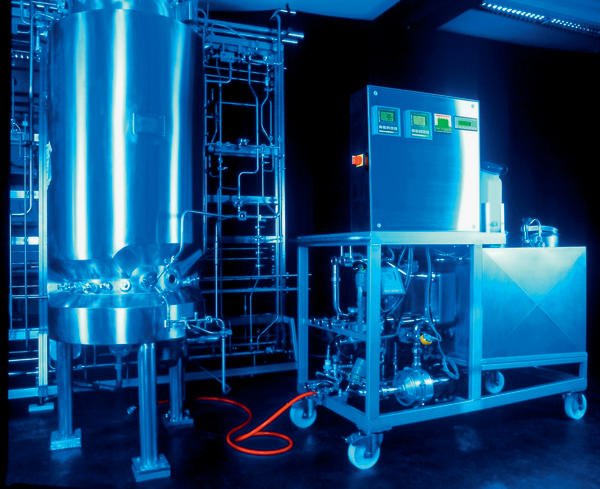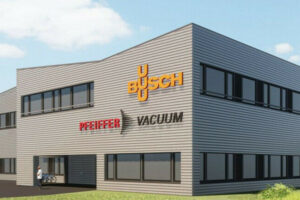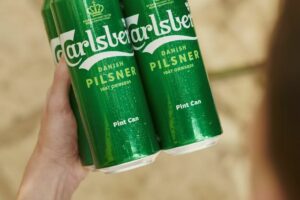Increasingly strict regulatory standards mean increased requirements regarding cleaning equipment and performance. There is often no space available for built-in CIP systems or installation is not economically viable. A fully automated mobile CIP system that allows up to 28 process steps to be performed and supports reusable cleaning agents has now been developed.
Dr. Karin Koller
Mobile cleaning stations such as Bioengineering’s CIP mobile allow controlled return and thus recycling of cleaning so- lutions of the kind commonly employed in built-in CIP systems. After pre-rinsing the tank and the piping, the cleaning agents are returned to the CIP tanks. They can therefore be used for several cleaning processes. To ensure the reproducibility of this eco-nomical cleaning method, the returned fluids must be monitored and controlled.
Time-saving, online analytical methods are preferable to laborious offline sampling. The conductivity measurement is the most commonly used for CIP processes and is suitable for all popular cleaning solutions. This method also detects a cleaning so- lution’s contamination rate. The solutions are then recycled or discarded accordingly.
A typical cleaning program could be a twelve-step process in Bioengineering’s CIP mobile. The cleaning solutions are prepared in the first step using conductivity measurements and level probes. The concentrates are dosed from 10 l containers. The plant is then pre-rinsed with water which is discarded. The first cleaning agent could be an alkaline solution from the reservoir tanks circulating through the plant. Blowing out with air minimises the residues of cleaning solution in the plant and in the effluent of the subsequent water rinse. After blowing out with air again, the plant is cleaned with an acidic solution, which is likewise circulated to the tanks, as well as a water rinse and a rinse with ultrapure water. The last step is performed until the conductivity measurement in the effluent line shows the specified result. The plant is carefully blown out with air after each step. Every step in the process is controlled by a programmable controller (PLC). Parameters such as the dosing speed, the composition of the cleaning solutions, the temperature and the quality of the circulated solutions can be defined. The PLC also opens and closes all valves required for the cleaning cycle automatically.
To leverage the full potential of the controller, 28 process steps can be programmed per recipe in each cleaning circuit. The multiple tasks of the CIP mobile are controlled by specifying various recipes. A separate recipe can thus be programmed for each cleaning circuit in the plant (e.g. reactor 1, reactor 2, transfer reactors 1 and 2). Other recipes can be defined for cleaning additional vessels, devices or plants using alternative methods.
Advantages of the CIP mobile
The recyclability of the cleaning solutions, the measurement and control precision – with conductivity measurements for quality control of the solutions before and after the cleaning process and level control for preparing the cleaning solutions – combine the economic and ecological benefits of a built-in CIP system. The high automation level of the CIP mobile permits a reproducible cleaning process and ensures complete cleaning of the plant according to the relevant specifications. The quick and easy connections to the plant and the energy supplies (steam, water, ultrapure water, air) reduce preparation time to a minimum. The compactness of the CIP mobile means the cleaning process complies with the regulations for plants and vessels with a total volume of up to 1500 l as well as for transfer, inoculum and dosage lines or other devices. No valuable production space is wasted, because the CIP mobile can be disconnected and removed in a few simple steps after the cleaning process has been finished.
cpp 457
Bioengineering’s products
Powtech 2008
Share:







